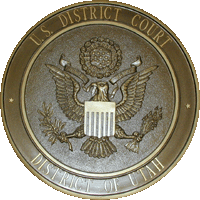The Federal Trade Commission Act of 1914 was a United States federal law which established the Federal Trade Commission. The Act was signed into law by US President Woodrow Wilson in 1914 and outlaws unfair methods of competition and unfair acts or practices that affect commerce.

In the United States, antitrust law is a collection of mostly federal laws that regulate the conduct and organization of businesses to promote competition and prevent unjustified monopolies. The three main U.S. antitrust statutes are the Sherman Act of 1890, the Clayton Act of 1914, and the Federal Trade Commission Act of 1914. These acts serve three major functions. First, Section 1 of the Sherman Act prohibits price fixing and the operation of cartels, and prohibits other collusive practices that unreasonably restrain trade. Second, Section 7 of the Clayton Act restricts the mergers and acquisitions of organizations that may substantially lessen competition or tend to create a monopoly. Third, Section 2 of the Sherman Act prohibits monopolization.

The Federal Trade Commission (FTC) is an independent agency of the United States government whose principal mission is the enforcement of civil (non-criminal) antitrust law and the promotion of consumer protection. The FTC shares jurisdiction over federal civil antitrust enforcement with the Department of Justice Antitrust Division. The agency is headquartered in the Federal Trade Commission Building in Washington, DC.
The Hart–Scott–Rodino Antitrust Improvements Act of 1976 is a set of amendments to the antitrust laws of the United States, principally the Clayton Antitrust Act. The HSR Act was signed into law by president Gerald R. Ford on September 30, 1976. The context in which the HSR Act is usually cited is 15 U.S.C. § 18a, title II of the original law. The HSR Act is named after senators Philip A. Hart and Hugh D. Scott, Jr. and representative Peter W. Rodino.

The Fair Debt Collection Practices Act (FDCPA), Pub. L. 95-109; 91 Stat. 874, codified as 15 U.S.C. § 1692 –1692p, approved on September 20, 1977 is a consumer protection amendment, establishing legal protection from abusive debt collection practices, to the Consumer Credit Protection Act, as Title VIII of that Act. The statute's stated purposes are: to eliminate abusive practices in the collection of consumer debts, to promote fair debt collection, and to provide consumers with an avenue for disputing and obtaining validation of debt information in order to ensure the information's accuracy. The Act creates guidelines under which debt collectors may conduct business, defines rights of consumers involved with debt collectors, and prescribes penalties and remedies for violations of the Act. It is sometimes used in conjunction with the Fair Credit Reporting Act.
A privacy policy is a statement or legal document that discloses some or all of the ways a party gathers, uses, discloses, and manages a customer or client's data. Personal information can be anything that can be used to identify an individual, not limited to the person's name, address, date of birth, marital status, contact information, ID issue, and expiry date, financial records, credit information, medical history, where one travels, and intentions to acquire goods and services. In the case of a business, it is often a statement that declares a party's policy on how it collects, stores, and releases personal information it collects. It informs the client what specific information is collected, and whether it is kept confidential, shared with partners, or sold to other firms or enterprises. Privacy policies typically represent a broader, more generalized treatment, as opposed to data use statements, which tend to be more detailed and specific.
Michael Pertschuk was an American attorney and advocate for consumer protection and public health. He served as a member of the Federal Trade Commission (FTC) from 1977 to 1984, and served as FTC Chair from 1977 to 1981. During his tenure, Pertschuk worked to strengthen the FTC's consumer protection powers.

Jonathan David Leibowitz is an American attorney who served under President Barack Obama as Chair of the Federal Trade Commission (FTC) from 2009 to 2013. Leibowitz was appointed to the commission in 2004, and resigned in 2013. During Leibowitz's tenure, the FTC brought privacy cases against Google, Facebook and others for violating consumer privacy, as well as enforcement against "pay-for-delay" deals in which pharmaceutical companies paid competitors to stay out of the market. Prior to joining the FTC, Leibowitz was Vice President for Congressional Affairs from 2000 to 2004 of the MPAA.
The Prioritizing Resources and Organization for Intellectual Property Act of 2008 is a United States law that increases both civil and criminal penalties for trademark, patent and copyright infringement. The law also establishes a new executive branch office, the Office of the United States Intellectual Property Enforcement Representative (USIPER).
Consumer protection is the practice of safeguarding buyers of goods and services, and the public, against unfair practices in the marketplace. Consumer protection measures are often established by law. Such laws are intended to prevent businesses from engaging in fraud or specified unfair practices in order to gain an advantage over competitors or to mislead consumers. They may also provide additional protection for the general public which may be impacted by a product even when they are not the direct purchaser or consumer of that product. For example, government regulations may require businesses to disclose detailed information about their products—particularly in areas where public health or safety is an issue, such as with food or automobiles.
The unfairness doctrine is a doctrine in United States trade regulation law under which the Federal Trade Commission (FTC) can declare a business practice "unfair" because it is oppressive or harmful to consumers even though the practice is not an antitrust violation, an incipient antitrust violation, a violation of the "spirit" of the antitrust laws, or a deceptive practice.
The United States Federal Trade Commission's fair information practice principles (FIPPs) are guidelines that represent widely accepted concepts concerning fair information practice in an electronic marketplace.

The Fairness to Contact Lens Consumers Act, also known as FCLCA, is a United States federal law that aims to improve consumer protection and ocular health for contact lens users.
The Telemarketing and Consumer Fraud and Abuse Prevention Act is a federal law in the United States aimed at protecting consumers from telemarketing deception and abuse. The act is enforced by the Federal Trade Commission. The act expanded controls over telemarketing and gave more control to prescribe rules to the Federal Trade Commission. After the passage of the act, the Federal Trade Commission is required to (1) define and prohibit deceptive telemarketing practices; (2) keep telemarketers from practices a reasonable consumer would see as being coercive or invasions of privacy; (3) set restrictions on the time of day and night that unsolicited calls can be made to consumers; (4) to require the nature of the call to be disclosed at the start of any unsolicited call that is made with the purpose of trying to sell something.

Palmer v. Kleargear.com, no. 13-cv-00175, is a 2013 federal lawsuit in which an internet retailer was sued by two of its customers after it billed the customers for $3,500 following a negative review. The retailer, Kleargear.com, specializes in nerd apparel, geek toys, gadgets and office toys; it is owned by Paris-based Descoteaux Boutiques. The plaintiffs charged the company with violating the Fair Credit Reporting Act, defamation and intentional infliction of emotional distress. In March 2014, the district court entered a default judgment for the plaintiffs, and in June 2014 awarded damages of $306,750. As of 2015, the Palmers continue to attempt to collect the judgment.
The Arbitration Fairness Act of 2011 is a proposed law in the US Congress to reverse the effects of 14 Penn Plaza LLC v. Pyett and AT&T Mobility v. Concepcion. Both judgments held, 5 judges to 4 dissenting justices, that employees and consumers were not entitled to claim for rights in public courts if they had agreed to arbitration in a collective or individual agreement. The result has been negation of statutory rights by contract.
Electronics right to repair is proposed legislation that would provide the practical means for electronics equipment owners to repair their devices. Repair is legal under copyright law and patent law. However, owners and independent technicians are often unable to make their own repairs because of manufacturer limitations on access to repair materials such as parts, tools, diagnostics, documentation and firmware.
Privacy and the United States government consists of enacted legislation, funding of regulatory agencies, enforcement of court precedents, creation of congressional committees, evaluation of judicial decisions, and implementation of executive orders in response to major court cases and technological change. Because the United States government is composed of three distinct branches governed by both the separation of powers and checks and balances, the change in privacy practice can be separated relative to the actions performed by the three branches.
Privacy laws vary from state to state within the United States of America. Several states have recently passed new legislation that adapt to changes in cyber security laws, medical privacy laws, and other privacy related laws. State laws are typically extensions of existing United States federal laws, expanding them or changing the implementation of the law.
AMG Capital Management, LLC v. FTC, 593 U.S. ___ (2021), was a U.S. Supreme Court case dealing with the ability of the Federal Trade Commission (FTC) to seek monetary relief for restitution or disgorgement from those that it found in violation of trade practices. The Court ruled unanimously that the FTC had misused its authority granted by the Federal Trade Commission Act under Section 13(b) to obtain monetary relief.





